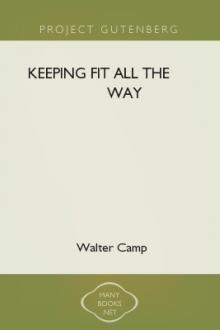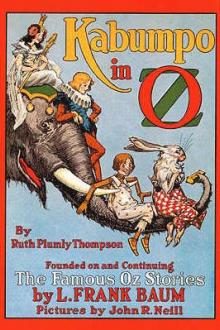Genre Literary Collections. Page - 18

PSYCHOLOGY OF THE LEADERS OF THE REVOLUTION
1. Mentality of the men of the Revolution. The respective influence of violent and feeble characters 2. Psychology of the Commissaries or Representatives ``on Mission'' 3. Danton and Robespierre 4. Fouquier-Tinville, Marat, Billaud-Varenne, &c. 5. The destiny of those Members of the Convention who survived the Revolution
BOOK III
THE CONFLICT BETWEEN ANCESTRAL INFLUENCES AND REVOLUTIONARY PRINCIPLES
CHAPTER I.
THE LAST CONVULSIONS OF ANARCHY. THE DIRECTORY 1. Psychology of the Directory 2. Despotic Government of the Directory. Recrudescence of the Terror 3. The Advent of Bonaparte 4. Causes of the Duration of the Revolution
CHAPTER II.
THE RESTORATION OF ORDER. THE CONSULAR REPUBLIC 1. How the work of the Revolution was confirmed by the Consulate 2. The re-organisation of France by the Consulate 3. Psychological elements which determined the success o

ER OF DAMAGES - Except for the "Right of Replacement or Refund" described in paragraph 1.F.3, the Project Gutenberg Literary Archive Foundation, the owner of the Project Gutenberg-tm trademark, and any other party distributing a Project Gutenberg-tm electronic work under this agreement, disclaim all liability to you for damages, costs and expenses, including legal fees. YOU AGREE THAT YOU HAVE NO REMEDIES FOR NEGLIGENCE, STRICT LIABILITY, BREACH OF WARRANTY OR BREACH OF CONTRACT EXCEPT THOSE PROVIDED IN PARAGRAPH F3. YOU AGREE THAT THE FOUNDATION, THE TRADEMARK OWNER, AND ANY DISTRIBUTOR UNDER THIS AGREEMENT WILL NOT BE LIABLE TO YOU FOR ACTUAL, DIRECT, INDIRECT, CONSEQUENTIAL, PUNITIVE OR INCIDENTAL DAMAGES EVEN IF YOU GIVE NOTICE OF THE POSSIBILITY OF SUCH DAMAGE.
1.F.3. LIMITED RIGHT OF REPLACEMENT OR REFUND - If you discover a defect in this electronic work within 90 days of receiving it, you can receive a refund of the money (if any) you paid for it by sending a written explanation to the person y

and calls in his physician. He does not pick up. Now, for the first time, he hears from the doctor words that he has caught occasionally about men far older than himself--"blood pressure." But he he is under fifty! The doctor says he must go slower. Now begins a dreary round indeed! He has never learned to go slow! He is an old man at fifty. If lucky, he has made money. But what is the price? He has found precious little fun in those fifteen or twenty years since he was a boy. Of course he has had his high living, his motor, his late hours. His cigars have been good, but he has never enjoyed them so much as he did the old pipe at camp. His dinners and late suppers can't compare with the fish and bacon of the woods.
What a fool he has been!
Perhaps he has caught himself in time. If so he is in luck and Nature may partially forgive him and give him a chance to "come back." He is well scared and he means to be good. But the scare wears off, and then, too, "business" presses him on again. And final

ivation of mushrooms. Florists need the loam and manure anyway, and these are just as good for potting purposes--better for young stock--after having been used in the mushroom beds than they were before, so that the additional expense in connection with the crop is the labor in making the beds and the price of the spawn. Mushrooms are not a bulky crop; they require no space or care in summer, are easily grown, handled, and marketed, and there is always a demand for them at a good price. If the crop turns out well it is nearly all profit; if it is a complete failure very little is lost, and it must be a bad failure that will not yield enough to pay for its cost. Why should the florist confine himself to one crop at a time in the greenhouse when he may equally well have two crops in it at the same time, and both of them profitable? He can have his roses on the benches and mushrooms under the benches, and neither interferes with the other. Let us take a very low estimate: In a greenhouse a hundred feet long make

tant. Laugh a little, you know, and hold on to my arm."
Marilee's fingers were cold on Dikar's arm, but her laugh rippled like a little stream running over pebbles in its bed. They walked slowly away from the fire reached the shadowy edge of the woods, were closed around by the forest darkness.
"Now!" Dikar said, and he was flitting through the forest night, Marilee a silent shadow behind him. It was like her to stay close behind, like her to ask no questions as he ran through the woods to the cave again.
At the cave-mouth Dikar stopped a moment, sniffing the air. "Yes," he said, more to himself than to Marilee. "I can still smell the smoke of the fire-stick. The wet night air holds smells a long time." Then he was moving again, following the sharp tang of smoke in the air, following it away from the cave and away from the clearing.
The scent-trail led him downhill. Soon the laugh of a streamlet came to his ears and then Dikar pushed through tangling bushes and came out into starli

"But I didn't " wailed Hashem, falling on his knees. "Only eggs, your Highness--very best eggs--sugar, flour, spice and -"
"Bombshells!" cried the King angrily.
"The cake disappeared before the party, your Majesty!" cried Eejabo.
Everyone jumped at the sudden interruption, and Eejabo, who had crept in unnoticed, stepped before the throne.
"Disappeared," continued Eejabo hoarsely, dripping blue water all over the royal rugs. "One minute there it was on the pantry table. Next minute- gone!" croaked Eejabo flinging up his hands and shrugging his shoulders.
"Then, before a fellow could turn around, it was back. 'Tweren't our fault if magic got mixed into it, and here we have been dipped for nothing!"
"Well, why didn't you say so before!" asked the King in exasperation.
"Fine chance I had to say anything!" sniffed Eejabo, wringing out his lace ruffles.
"eh-rr-you may have the day off, my good man," said Pompus, with an apologetic cough-- "

rewhat might perhaps be called the outside elements of life. Theseonce normally faced, cease to exist as impediments, dwindle away,and finally disappear altogether.
Thus we are enabled to get nearer the kernel, and have a growingrealization of life itself.
Civilization may give a man new freedom, a freedom beyond any powerof description or conception, except to those who achieve it, or itmay so bind him body and soul that in moments when he recognizes hisnervous contractions he would willingly sell his hope of immortalityto be a wild horse or tiger for the rest of his days.
These stones in the way are the result of a perversion ofcivilization, and the cause of much contraction and unnecessarysuffering.
There is the physical stone. If the health of the body were attendedto as a matter of course, as its cleanliness is attended to by thoseof us who are more civilized, how much easier life might be! Indeed,the various trippings on, and endeavors to encircle, this physicalstone, raise man

as present the greater part of the time.
* * * * *
From the foregoing, and from additional experiments, which it is not necessary to give in detail, it appeared, that when applied to a wound made in the most sensitive parts of the integuments, the oil of tobacco, though it caused a good deal of pain, had a far less general effect than when applied to the tongue. Rats were less affected than cats. Two and sometimes three drops rubbed upon the tongue of a rat, did not kill in half an hour.
Three large drops rubbed upon the tongue of a full-sized cat, usually caused death in from three to ten minutes, and in one instance, already stated, in two minutes and forty-five seconds. One drop passed into the jugular vein of a large dog, occasioned an immediate cry, followed in a few moments by staggering, convulsive twitchings of the voluntary muscles, and vomiting.
In those cases in which full vomiting occurred, evident relief fo

new civilization. Morning is still the most universal figure of progress, the type of a new life. More than all other natural occurrences it is used as a symbol of something higher.
May we not, accordingly, discover that from a psychological as well as a physiological point of view, for reasons of health and development, morning is the most significant and important time of the day!
No human being at the first moment of awakening is gloomy or angry. Everyone awakes in peace with all the world. It is a time of freedom. A moment later memory may bring to the mind some scene or picture that leads to good or bad thought, followed by emotion. This first moment of consciousness is the critical and golden moment of human life. How often has it been said to a child: "You must have gotten out of the wrong side of bed this morning."
Even animals and birds feel the significance of morning. Who has not, at early dawn, heard a robin or some other bird begin to sing--"at first alone," as Thomas Hardy
